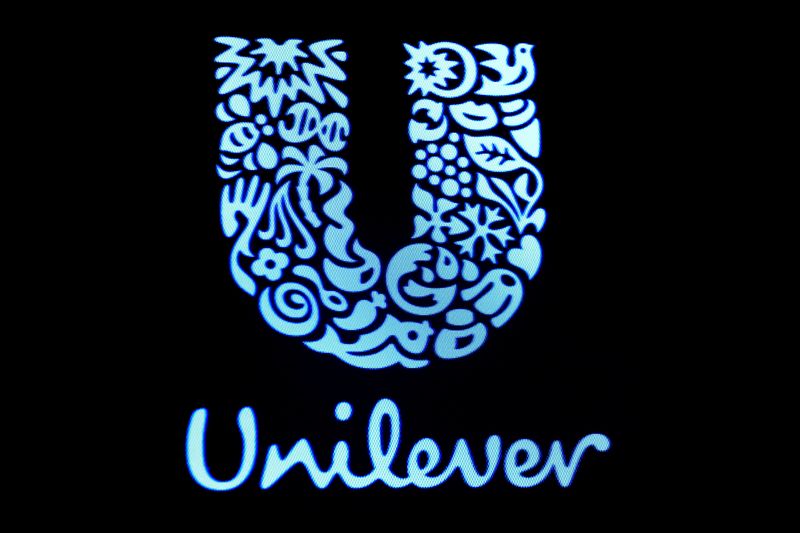
© Reuters. FILE PHOTO: The company logo for Unilever is displayed on a screen on the floor of the New York Stock Exchange (NYSE) in New York, U.S., February 17, 2017. REUTERS/Brendan McDermid/
By Richa Naidu
LONDON (Reuters) – Unilever (NYSE:) said on Thursday it expects a “consumption boom” in China as lockdowns ease, flagging $1.5-$2 trillion in “excess household savings” it believes could boost its sales in the country and in Southeast Asia.
After almost three years of a “zero-COVID” strategy, Beijing dropped restrictions almost completely in early December. In January, China’s cabinet said it would boost imports and promote a consumption recovery to boost the economy.
As Chinese consumers have limited options where they can invest their savings, with the housing market not a viable option, Unilever Chief Executive Alan Jope said: “We are expecting to see a little bit of a consumption boom in China.”
“If you look at things like air flight bookings, travel and hotels, cinema occupancy, China’s coming back quite quickly,” Jope said.
Chinese tourists will also boost consumption in Southeast Asian countries including Thailand and Vietnam, the company said.
Lunar New Year consumption was reported in January as 12.2% higher than last year by China’s tax authority, while domestic holiday trips for the same period surged 74%, as people celebrated outside their homes for the first time in years.
The country’s economic activity swung back to growth in January, with domestic orders and consumption driving output higher.
Unilever reported on Thursday that full-year underlying sales in China fell 1% as people stayed home. The country is one of the company’s top three markets by sales, with the other two being the United States and India.
Graphic: China economic activity rebounds- https://www.reuters.com/graphics/CHINA-ECONOMY/PMI/dwpkdegoxvm/chart.png
On Wednesday, ratings agency Fitch revised its forecast for China’s economic growth in 2023 to 5.0% from 4.1%, led mostly by consumption.
The luxury industry is also keeping an eye on China, with hopes high-end spenders will once again splurge on designer goods.


Be the first to comment